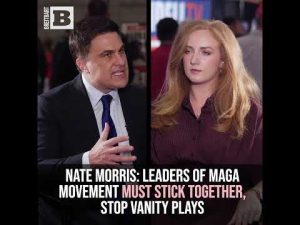In the ongoing saga surrounding Donald Trump and his legal troubles, a New York judge has recently made a significant ruling that raises questions about the intersection of law, politics, and presidential conduct. The judge, Justice Juan Merchan, determined that a Supreme Court ruling granting Trump presidential immunity does not apply in this case since the conduct under scrutiny is deemed unofficial. This decision has left many scratching their heads and wondering what on earth could happen next.
To understand the details, it’s essential to know that Trump was convicted for issues related to the mismanagement of corporate books in New York. While many observers have pointed out that there was no victim and, frankly, no crime in their eyes, the court saw it differently. Under New York law, the failure to maintain proper corporate records means a corporate leader, such as the former president, could be held accountable—even if the allegations occurred before he entered the Oval Office. The judge noted that Trump’s actions, including signing checks from the Oval Office, were brought up during the proceedings, but ultimately did not see them as sufficient to invoke immunity status.
According to legal experts, Trump’s lawyers argued vehemently that since some actions occurred in the White House, they should be considered presidential conduct and thus immune from prosecution. However, Justice Merchan respectfully disagreed, emphasizing that shining a spotlight on the president’s time in office does not mean he can dodge accountability for his alleged mismanagement. In short, he ruled that Trump’s conviction stands, but everyone is still waiting to see how he’ll be sentenced.
Now, in a twist that one might more typically find in a soap opera than a courtroom, the government has asked for a significant delay in the sentencing. They want to put the case “on the shelf” until Trump leaves office in four years. This means that they would revisit the case in 2029, which is certainly a unique request in the realm of judicial proceedings. In most scenarios, trials and sentencing happen relatively close together, ensuring swift justice. A request like this raises a lot of eyebrows and begs the question: does the law bend for a sitting president?
As it stands, there’s no clear path forward. It’s uncertain what will happen next, and this is uncharted territory for the judicial system. Should the judge grant this unusual request to delay things for four years, several questions loom large. For one, who will be in the roles of prosecutor and judge in 2029? Elections proceed, and the political landscape can change quicker than one can say “impeachment.” It’s entirely possible the individuals currently involved might not even be in their positions by that time, leaving the future of the case in a delicate limbo.
In the guesswork of legal predictions, some believe the judge could opt to simply dismiss the case or perhaps deliver a minor sentence that amounts to little more than a slap on the wrist. Regardless of the outcome, the world will be watching as this unprecedented legal situation unfolds. The drama is sure to continue as political tensions rise and the story takes yet more unexpected turns. One thing is for sure: the confluence of law and politics is as thrilling—and perplexing—as any reality television show.







